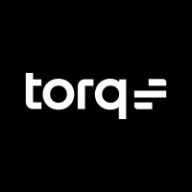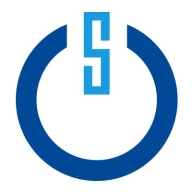


AWS Security Hub and CRITICALSTART are competitors in the cybersecurity market. AWS Security Hub holds an edge in integration within the AWS ecosystem, while CRITICALSTART excels in advanced threat detection and response.
Features: AWS Security Hub integrates seamlessly with AWS services, offers a centralized security view, and maintains compliance checks. It acts as a one-stop dashboard for security alerts. CRITICALSTART provides real-time threat intelligence, managed detection and response services, and strong human intervention capabilities, utilizing a Zero-Trust model for security enhancements.
Room for Improvement:AWS Security Hub could improve its UI intuitiveness and support for hybrid environments and reduce complexity in dashboard usage. CRITICALSTART could enhance response times, lower the complexity of UI navigation, and refine feature tuning for better alert management.
Ease of Deployment and Customer Service: AWS Security Hub is easily deployed for AWS environments with comprehensive documentation and automation features, promoting self-reliance. CRITICALSTART offers a more hands-on deployment with personalized support, beneficial for organizations needing extensive setup assistance.
Pricing and ROI: AWS Security Hub offers cost-effective scalability, suiting organizations deeply embedded in AWS. CRITICALSTART, though potentially higher in initial costs, provides tailored security solutions and expert management that justify its pricing for businesses prioritizing security.
| Product | Market Share (%) |
|---|---|
| AWS Security Hub | 6.8% |
| Torq | 4.9% |
| CRITICALSTART | 0.6% |
| Other | 87.7% |


| Company Size | Count |
|---|---|
| Small Business | 10 |
| Midsize Enterprise | 5 |
| Large Enterprise | 12 |
| Company Size | Count |
|---|---|
| Small Business | 4 |
| Midsize Enterprise | 3 |
| Large Enterprise | 4 |
Torq is the enterprise AI SOC solution that effectively combines adaptive insights and automation to handle critical threats efficiently. It manages threat lifecycles, swiftly moving from triage to response, ensuring effective risk management.
Torq is designed to streamline security operations by aggregating telemetry across your security stack. It investigates significant risks and manages threats from triage to containment and remediation. This AI-driven tool enhances the capabilities of your SecOps team, allowing them to achieve more impactful results without introducing complicated processes.
What are the key features of Torq?In industries like finance and healthcare, Torq shows effectiveness by adapting to specific risk scenarios often encountered in these fields. Its integration with existing infrastructures makes it a valuable asset for maintaining stringent security standards, essential for protecting critical data and operations in diverse high-stakes environments.
AWS Security Hub is a comprehensive security service that provides a centralized view of security alerts and compliance status across an AWS environment. It collects data from various AWS services, partner solutions, and AWS Marketplace products to provide a holistic view of security posture. With Security Hub, users can quickly identify and prioritize security issues, automate compliance checks, and streamline remediation efforts.
The service offers a range of features including continuous monitoring, threat intelligence integration, and customizable dashboards. It also provides automated insights and recommendations to help users improve their security posture. Security Hub integrates with other AWS services like Amazon GuardDuty, AWS Config, and AWS Macie to provide a unified security experience. Additionally, it supports integration with third-party security tools through its API, allowing users to leverage their existing security investments.
With its user-friendly interface and powerful capabilities, AWS Security Hub is a valuable tool for organizations looking to enhance their security and compliance posture in the cloud.
The cybersecurity landscape is growing more complex by the day with the arrival of new threats and new tools supposedly designed for combating them. The problem is it’s all creating more noise and confusion for security professionals to sort through.
CRITICALSTART is the only MDR provider committed to eliminating acceptable risk and leaving nothing to chance. They believe that companies should never have to settle for “good enough.” Their award-winning portfolio includes end-to-end Professional Services and Managed Detection and Response (MDR). CRITICALSTART MDR puts a stop to alert fatigue by leveraging the Zero Trust Analytics Platform (ZTAP) plus the industry-leading Trusted Behavior Registry, which eliminates false positives at scale by resolving known-good behaviors. Driven by 24x7x365 human-led, end-to-end monitoring, investigation and remediation of alerts, their on-the-go threat detection and response capabilities are enabled via a fully interactive MOBILESOC app.
We monitor all Security Orchestration Automation and Response (SOAR) reviews to prevent fraudulent reviews and keep review quality high. We do not post reviews by company employees or direct competitors. We validate each review for authenticity via cross-reference with LinkedIn, and personal follow-up with the reviewer when necessary.